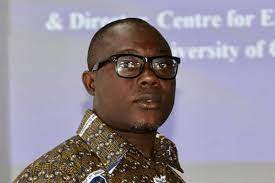-
Media Freedom MUST be respected in every democracy. But this is not licentious for Media Tyranny. The unintended consequences of the liberalization of our airwaves and the proscription of laws that gagged the media, following the promulgation of the 1992 Constitution, has been the belief that journalists must be tin-gods, who must not be touched, regardless of what they do, and can arrogate to themselves the right to do anything, including turning a man into a woman.
- Sometimes, in their quest to be the first to break the news, some blatantly insult and deliberately run down reputations and even when their attention is drawn to their errors, some ignore and others may publish retractions with infinitesimal prominence.
- Some sensationalize issues that require sobriety, and publish images that offends customary protocols, with impunity. Some deliberately give wrong headlines to stories just for the purposes of selling their tabloids or directing traffic to their sites. Some do these with impunity and feel they cannot and must not be touched by anyone, simply because they belong to the Fourth Estate of the realm. This is what I call Media Tyranny.
- Democracy cannot thrive in a regime of Media Tyranny. Equality before the law is a distinguishing feature of every democracy and no group of people can assume superiority over others. By all means, Journalists must do their work but when they err, they must know they aren’t tin-gods. They must face the law too, but in a civil manner, devoid of high-handedness.
In the current alleged assault on a Citi FM journalists, a few questions must be dispassionately answered:
- Is there truly a law in Ghana that forbids us from taking pictures at certain security areas?
- Can this rule be violated by a journalist in the national interest?
- The whole idea of National Interest is nebulous. Who defines the national interest and whose interest is the national interest? Is the national interest the public interest? Who is the public? Can national/public interest arbitrarily defined by anybody?
- Can any Ghanaian enter the premises of any state institution or property and begin to take pictures? Can any Ghanaian go to the Jubilee House and begin to take pictures, just because the place is run with our taxes?
- Did the journalist violate any law in what he did?
- Was he truly beaten when arrested and is there any evidence to suggest so, beyond his own narration?
- Is it lawful to beat up any Ghanaian and for that matter, an identifiable Journalist who may have allegedly violated any law?
There are two sides to the issue. First, the journalist allegedly violating a law, a custom or a practice, and second, the National Security operatives allegedly beating him up, without resorting to due process of law. These must be independently investigated without any cover-up. The National Security may do its own investigations but this should not prejudice any independent investigations into the matter.
Generally, (and this isn’t with specific reference to the alleged Caleb beating incident), we must not continue to hype the abuse of journalists over the infractions of journalists in a manner that only demonizes abusers and perpetuate media tyranny. We must deal with the phenomenon of media tyranny with the same energy we would deal with those who abuse journalists. Security capos must be civil, humane and law-abiding, in handling those who violate laws. But at the same time, no group of people can assert tin-god status over the rest of the populace. Even the Executive President, clothed with all powers like a political king-kong, cannot be a tin-god in a maturing democracy like Ghana.
Yaw Gyampo
A31, Prabiw
PAV Ansah Street
Saltpond
&
Suro Nipa House
Kubease
Larteh-Akuapim





